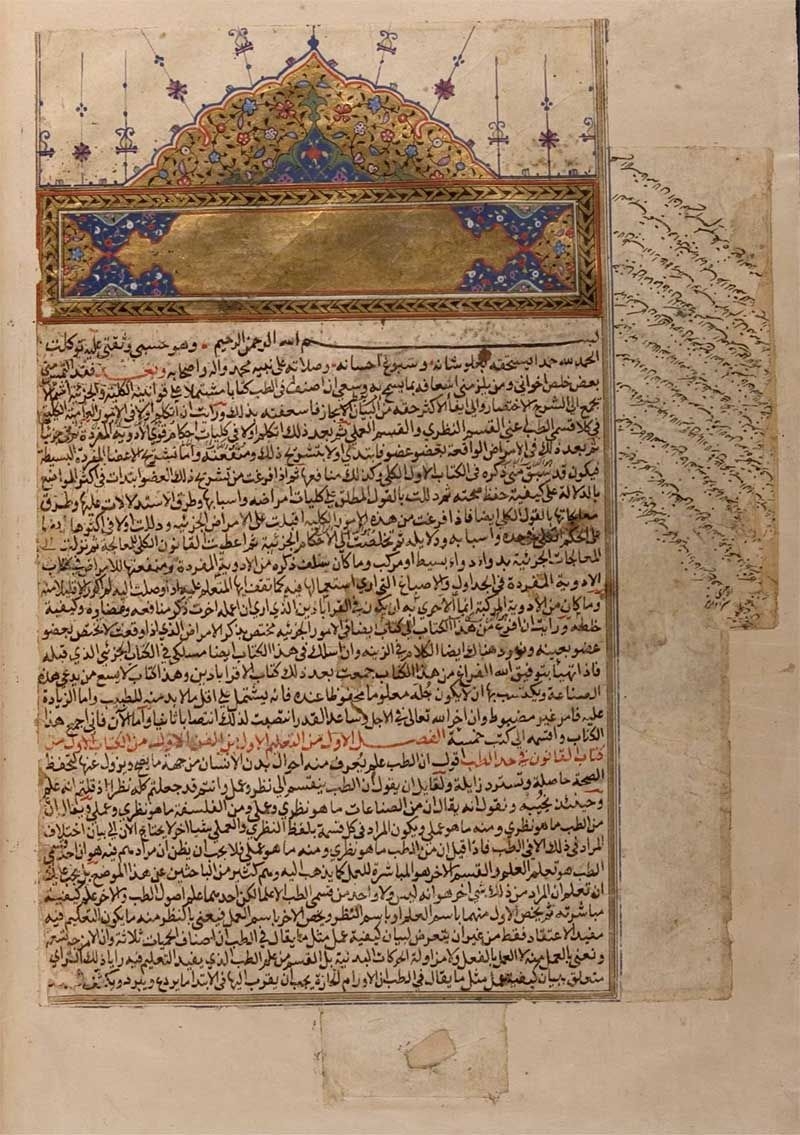Despite the tireless progress of modern medicine, many health tips simply remain unchanged throughout the centuries. No supplement can replace good quality sleep, while grounding techniques and meditation have proven to be reliable means of tackling anxiety and stress with no side-effects. Such foundations of a healthy lifestyle were established by some of the greatest ancient doctors. Its current manifestations as part of the increasingly popular wellness industry are simply a retelling of their advice.
Looking at some of these original sources, The Canon of Medicine undoubtedly springs to mind as a centuries-long source of wisdom for doctors across the ancient Near East, medieval Europe and Kievan Rus. Its author – Abu Ali Sina, otherwise known as Avicenna – was one of the greatest minds of his time. As a researcher and scientist, he mastered medicine by the age of 16, leaving behind several hundreds of texts on the art of healing, philosophy chemistry and mathematics.
A significant bulk of some of his quirkier recipes (like those using hedgehog blood and Spanish flies) have not aged well. However, this does not mean they should be dismissed altogether. To him, the main aim of medicine was not to combat disease but rather to maintain good health – two very different approaches. Avicenna strongly believed that there is no mystery to longevity and for this reason had no faith in astrological solutions for his patients. We could not agree more. So, which out of this great Persian polymath’s recommendations can we take on board in the 21st century?
1/ Leading an active lifestyle
The statistic of an average office worker today spending around 85% of their day seating down would no doubt make Avicenna turn in his grave. To him, active lifestyle was a fundamental condition of health. The energy of our organs weakens as a result of inactivity, would have been his advice. Someone who exercises regularly and moderately would require no medicine. Sloth and indolence, on the other hand, were seen as common sources of disease.
While Avicenna did not expand on what those diseases might have been, modern science now has some answers. Numerous studies on the influence of sedentary lifestyle on our health juggle such concepts as metabolic syndrome, obesity, cancer, hypertension and coronary heart disease. Experts from Queen’s University Belfast evaluate that around 70,000 Brits a year die prematurely as a result of inactivity.
Before you think it, two hours of fitness a week simply will not do. Our body requires regular and moderate exercise, as opposed to periods of idleness alternated with bursts of exhausting gym sessions. So, what is the answer? Increase your daily activity by walking more, taking up a morning workout and, if you have children, engaging in active games. Your body will thank you. According to Avicenna, an active dynamic, person can takes pride in their physique, while a sedentary sloth is only making themselves more vulnerable to all sorts of bodily imperfections.
2/ Sleep is not for the weak
The healing qualities of sleep have been considered long before science found evidence for melatonin’s health benefits. No wonder then that it gets the attention it deserves in Avicenna’s works as well. To anyone living a modern lifestyle, excess sleep is hardly a threat, which, according to Avicenna, leads to low energy and muddled thoughts. And yet, it is worth noting that catching up on sleep over the weekend is never a good idea as it disrupts our natural circadian rhythms. Changing sleep routines is a stress for the body and a common cause of insomnia and metabolism disruption. Avicenna came to know this first hand. “Tossing in bed between wakefulness and sleep is the worst of all states,” he wrote.
3/ Do not overeat
Nutrition is a big part of Avicenna’s teachings, where overindulgence is seen as one of the stomach’s major nemeses. With this in mind, he recommended reducing the food intake and taking an occasional day to detox. “If you have eaten too much, stay hungry the next day,” was his teaching.
He particularly frowned upon eating right before bedtime, which, in his opinion, could lead to night sweats. However, according to modern science excessive sweating should be the least of our worries here.
Those eating 1-2 hours before bed are more prone to developing non-dipper hypertension, leading to arterial blood pressure being unable to go down to its normal levels throughout the night. Not only does this have a direct impact on your sleep quality, making you wake up frequently throughout the night, but also on the function of your cardio-vascular system, increasing the risk of a heart attack.
4/ Use a spa
Avicenna recommended taking the spa experience slow, with a calm and considered approach, entering the waters gradually. He was clearly a great advocate for spas. Here is a list of just a few of the ailments he believed them to help with: disorders of the nervous system, excess weight, digestive issues, blood circulation, migraines and insomnia. He believed it to be truly one of the most beneficial healing procedures. Today’s medicine has made much progress in treating these health concerns. However, even now nothing compares to a spa when it comes to its overall health benefits.
Regular visits to a spa reduce the risk of such heart conditions as stroke, strengthen the blood vessels, and promote the release of toxins from our body. The benefits of thermal spas for our skin are worthy of a whole other article. Its benefits are especially lauded when used in combination with a salt scrub and some moisturising oils.
5/ Stay optimistic
The less you fear disease, the more it fears you, was Avicenna’s thinking. Living at the turn of the 10th and 11th centuries, he could not have possibly imagined the average problems we face as city dweller in 2020. Yet, the main piece of advice he shared with his patients could easily apply to our generation. To avoid diseases of the soul and body, he recommended keeping a balanced attitude, not giving in to wrath, grief, apathy or fear. For fear and death oft walk hand in hand.
Since then, there has been experimental evidence for the benefit of an optimistic outlook on life. Those not giving in to their negative emotions are better at handling stress, heal faster after surgery and live longer overall. It seems that Avicenna’s pre-penicillin times advice to stay active, be joyful and live a hundred years or more rings true even in today’s age of pharmacology and biohacking.


